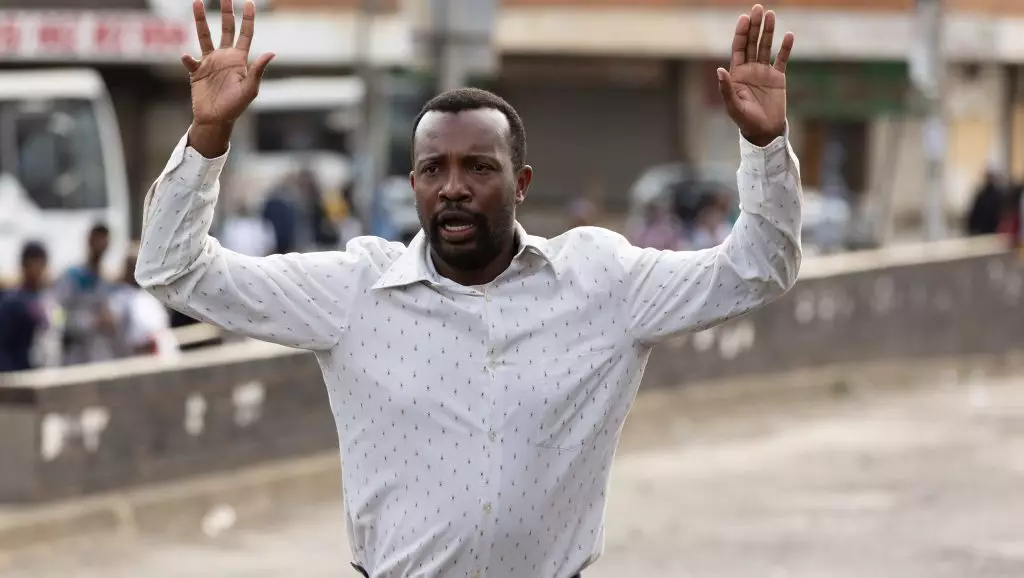In a world increasingly fascinated by criminal psychology and the darkest corners of human nature, the upcoming true-crime docuseries, “The ABC Killer,” emerges as not just an entertainment piece but a profound exploration into the depths of human depravity. Set against the backdrop of a post-apartheid South Africa, this riveting series aims to dissect the horrifying actions of one of the nation’s most notorious serial killers, Moses Sithole. With the documentary’s innovative approach, viewers are invited to confront both the chilling narrative and the social dynamics of the era.
The revival of true crime storytelling has sparked varying opinions among audiences—some revel in the suspense and intrigue while others express concern about sensationalism overshadowing the gravity of the topics. However, “The ABC Killer” appears to maintain a delicate balance, striving not just to fascinate, but also to educate. The psychological portrait painted of Sithole invites viewers not merely to laugh at the absurdity of evil but to engage with it on a deeper level.
A Journalist’s Disturbing Journey
At the heart of this saga is Tamsen de Beer, a brave journalist who finds herself in a uniquely disturbing dance with the killer. When De Beer receives a call from Sithole, it ignites a chilling rapport that spirals into an exploration of twisted mentalities. Her reflection on this harrowing relationship reveals a vulnerability and complexity that often saturate the lives of those entangled in violent narratives. “It was like a journey I was on with him,” she states, indicating a deep-seated fascination that often blurs the lines of morality.
This personal connection leads audiences to ponder the psychological implications of forming bonds with individuals who embody the very essence of human monstrosity. De Beer emerges as a pivotal character, not just as a witness to Sithole’s terror but as a representation of how courage can be intertwined with fear, putting her own life at risk while seeking truth.
The Context of Terror: A Nation’s Struggle
Set shortly after Nelson Mandela’s historic election, the series does not merely tell the story of a killer; it paints a vivid picture of a nation grappling with its own identity amidst chaos. Certain sociocultural dynamics shaped the scenario in which Sithole thrived—predominantly targeting young Black women in a country still healing from the scars of apartheid. This aspect is illuminating as it sheds light on broader societal issues, pointing to themes of vulnerability, gender violence, and racial disparities in South Africa.
The depiction of the time period adds a substantial layer to the narrative. Underneath the shocking events lies an opportunity for discussions about social justice, collective trauma, and the human spirit’s resilience in the face of horror. By delving deep into the world of its characters—including the detectives and survivors—the series invites audiences to engage in a dialogue that transcends mere entertainment.
Austere Visual Storytelling
Directed by Jasyn Howes, “The ABC Killer” employs an audacious visual style that marries reenactments with real-world locations, emphasizing the bone-chilling reality of the events. By incorporating sites like the Germiston Train Station and the Pretoria High Court, the series grounds its narrative in the very places where history unfolded. Such artistic choices reinforce the idea that the past is not solely a sequence of events; it’s a collective memory still resonating in the present.
Furthermore, the series benefits from the insights of professionals deeply entrenched in law enforcement and criminal profiling. As they dissect the case, their evaluations contribute a somber realness to the sensational narrative, alerting audiences to the responsibilities of those in power while seeking justice for the oppressed and marginalized. It punctuates a crucial point in history that transcends mere entertainment—it is a stark reminder of the consequences of societal neglect.
A Legacy of Darkness
Ultimately, the series seeks to reveal more than just the monstrous persona of Moses Sithole. It implores viewers to confront their own latent fears and societal failures—the dark corners of humanity that continue to echo through time. By encapsulating a historical moment with profound modern implications, “The ABC Killer” not only chronicles a past riddled with violence but also renders a foreboding mirror, reflecting ongoing struggles against misogyny, racism, and violence in our present-day. As viewers engage with such narratives, they are compelled to reflect on their own societal contributions—or failures—towards justice and community safety. This is what truly renders “The ABC Killer” both timely and timeless, inviting each one of us to explore the fragility of life amid an ever-looming darkness.

